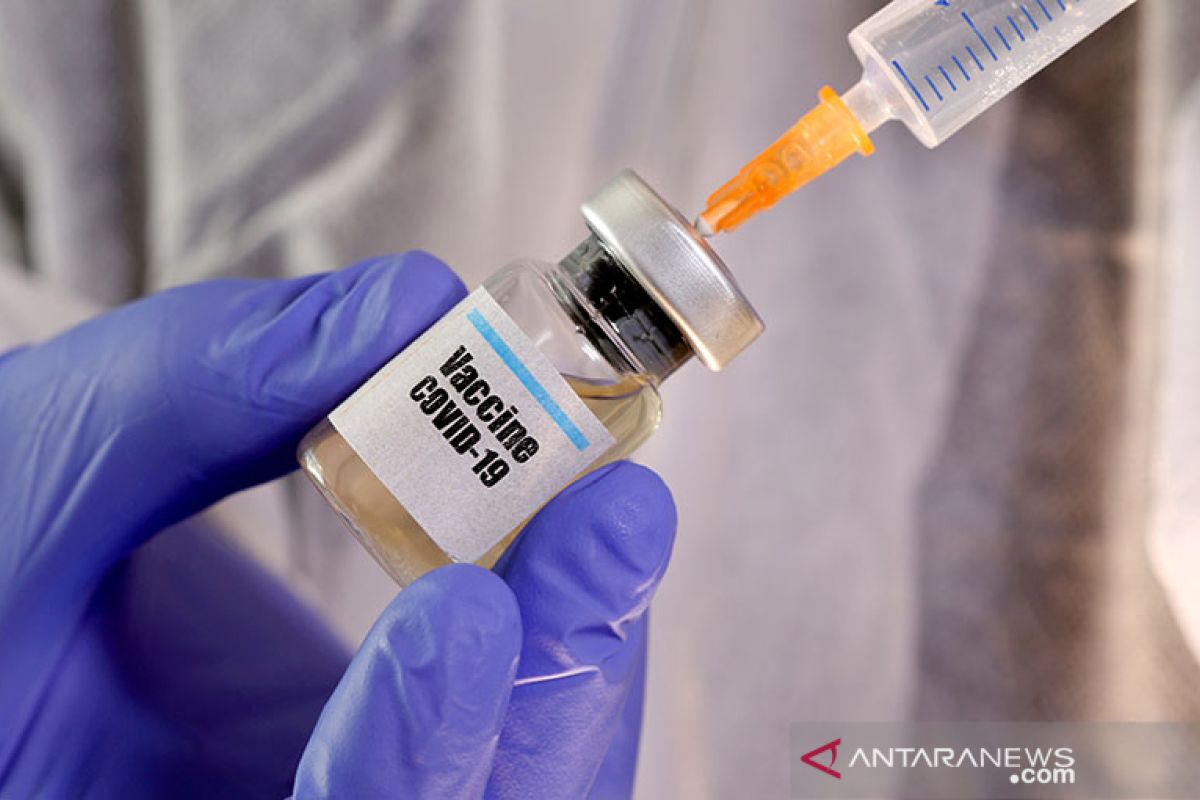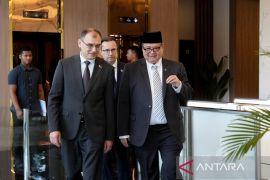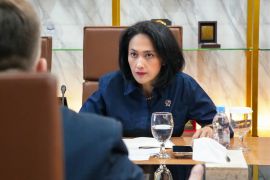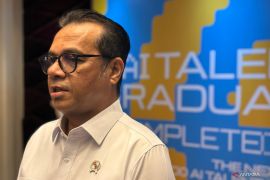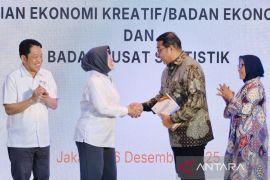Mr President says that safety is number one. I think the government does obey the rulesBogor, W Java (ANTARA) - Indonesia has been adopting cautious and prudent approaches in its endeavors to ably fight the novel coronavirus disease (COVID-19) pandemic through a COVID-19 vaccination program scheduled to commence in the second week of November 2020.
The Government of Indonesia declared that it will delay the first phase of its COVID-19 vaccination program whilst awaiting the Food and Drug Monitoring Agency’s (BPOM’s) issuance of an emergency use authorization.
The emergency use authorization is perceived as an important element for the vaccination program, but it cannot yet be issued since the BPOM has to complete several steps, including results of the Phase 3 clinical trials of the vaccine candidates later used.
The government had constantly applied vigilant and prudent approaches to ensure the safety, effectiveness, and immunogenicity of all COVID-19 vaccines that Indonesians will sooner or later receive as part of its endeavors to win the battle against COVID-19.
Coordinating Minister for Maritime Affairs and Investment Luhut Binsar Pandjaitan recently unveiled that the absence of BPOM's emergency use authorization had resulted in a delay in the vaccination program despite the COVID-19 vaccine stocks being available.
Speaking at a meeting to discuss issues pertaining to the job creation law that the National Resilience Institute (Lemhanas) held on Oct 23, Pandjaitan noted that President Joko Widodo had also called him to remind of the importance of prioritizing safety and following the rules.
"Mr President says that safety is number one. I think the government does obey the rules," he remarked at the meeting broadcast on the institute's YouTube channel.
Speaking in connection with the government's planned vaccination program, the Indonesian Medical Association (IDI) had reiterated the significance of the availability of safe and effective vaccines.
In its letter to the Health Ministry, accessed by ANTARA on Oct 22, 2020, IDI's central executive board lauded the government for prioritizing the vaccination program for medical workers.
However, IDI Chairman Daeng M. Faqih, who signed the letter, highlighted the importance of ensuring that the safety, effectiveness, and immunogenicity of the COVID-19 vaccines be established before being administered to Indonesians.
President Widodo has instructed that the vaccination program not be conducted hurriedly, he revealed, adding that the required vaccines can evidently be vetted through the published results of their Phase 3 clinical trials.
Faqih further cited the caution exercised by other countries when it comes to COVID-19 immunizations by awaiting further published data on the results of Phase 3 clinical trials.
The trials for China's Sinovac vaccine, for instance, would have been conducted on nine thousand volunteers in Brazil, but the results would have been published soon after 15 thousand volunteers had been vaccinated.
This reality shows that apart from its significance in battling the pandemic, the vaccination program must not be conducted in a hurry, he emphasized.
The Indonesian government has consistently expressed confidence in the potential of the COVID-19 vaccines to help it win the fight against the COVID-19 pandemic that has posed a serious threat to public health and the economy.
Over the past few months, the government has made all-out efforts to secure the procurement and supply of potential COVID-19 vaccines for Indonesians through a bilateral and multilateral cooperation scheme.
The government is also supporting research efforts for developing the country's own COVID-19 vaccine, named after the colors of the national flag, Merah Putih (Red and White).
Through a bilateral cooperation, Indonesia has cooperated with China and the United Kingdom for the procurement and supply of this COVID-19 vaccine.
Indonesia has secured access to COVID-19 vaccines from China as a result of a meeting between the Indonesian delegation and the representatives of Cansino, G42, Sinopharm, and Sinovac in China on October 10 this year.
Cansino has pledged to supply 100 thousand single doses of the vaccine in November 2020 and about 15-20 million doses in 2021, while G42 and Sinopharm have promised to supply 15 million double doses of the vaccine this year, of which, five million are projected to be offered in November this year.
Meanwhile, Sinovac has pledged to supply three million single doses of the COVID-19 vaccine by the end of December 2020. Additionally, it has promised to provide 15 million doses in bulk.
Of the three million Sinovac doses, 1.5 million will be made available in the first week of November, while the rest will be supplied in the first week of December this year.
Sinopharm has vowed to supply 50 million double doses of the COVID-19 vaccine in 2021, while Cansino and Sinovac have pledged to provide 20 million single doses and 125 million double doses, respectively.
On Oct 14, 2020, the Indonesian Health Ministry had also signed a letter of intent (LoI) with British pharmaceutical company AstraZeneca PLC to secure 100 million doses of the COVID-19 vaccine in 2021.
Apart from the government's success in securing vaccine supplies and procurement and implementation of cautious and prudent approaches in its vaccination program, these may not automatically be able to encourage the entire nation to participate in it actively.
Building sound communication to make communities from different socio-cultural and religious backgrounds fully comprehend and, finally, accept the vaccination program cannot be overlooked.
Several Muslims in Indonesia may still raise doubts over the halal status of COVID-19 vaccines owing to religious concerns. The government and authorized bodies should respond swiftly and ably to address this public concern.
The Indonesian Ulema Council (MUI) has pledged to maintain its principle of transparency in connection with COVID-19 vaccines while urging Muslim communities nationwide to stay calm and avoid creating undue narratives on the halal status of the vaccines.
According to Director of the MUI Food and Drug Analysis Agency (LPPOM MUI) Lukmanul Hakim, while drawing reference to the Sharia Law, in emergency circumstances as in the case of this ongoing COVID-19 pandemic situation wherein medicines or vaccines are yet unavailable, a vaccine product, with unclear halal status, is permissible for Muslims.
Hakim cited the example of the Fatwa Commission of the Indonesian Ulema Council (MUI) that declared that in emergency circumstances, the Measles Rubella (MR) vaccine usage was permissible despite its porcine origin.
A similar approach could be followed for the COVID-19 vaccine-related fatwa if vaccine products were declared to have no halal status, he pointed out.
The LPPOM MUI's team of auditors along with the representatives of the Indonesian Health Ministry, Food and Drug Monitoring Agency (BPOM), and other related agencies had visited China in mid-October to audit the country's vaccine products, he remarked.
In ensuring the halal status of a vaccine product, Hakim highlighted three substantial issues, including sources or materials used in the vaccine's production process.
A pharmaceutical industry is also demanded to utilize equipment, facilities, and production procedures that can guarantee the halal status of its vaccine products; and the authentication of its products is proven through credible laboratory tests.
Hakim’s suggestion can likely be taken up by pharmaceutical industries that will produce Indonesia's indigenous COVID-19 vaccine candidate, currently developed by scientists from the Jakarta-based Eijkman Institute for Molecular Biology, Indonesian Institute of Sciences (LIPI), and four prestigious public universities.
Furthermore, the government still has sufficient time to ensure the availability of all COVID-19 vaccines with guaranteed safety, effectiveness, and immunogenicity and to step up its public campaigns on the significance of surmounting over the pandemic through vaccination.
Related news: MUI urges Muslims to stay calm regarding COVID-19 vaccines
Related news: BPOM to supervise circulation of COVID-19 vaccines
EDITED BY INE
Editor: Fardah Assegaf
Copyright © ANTARA 2020
